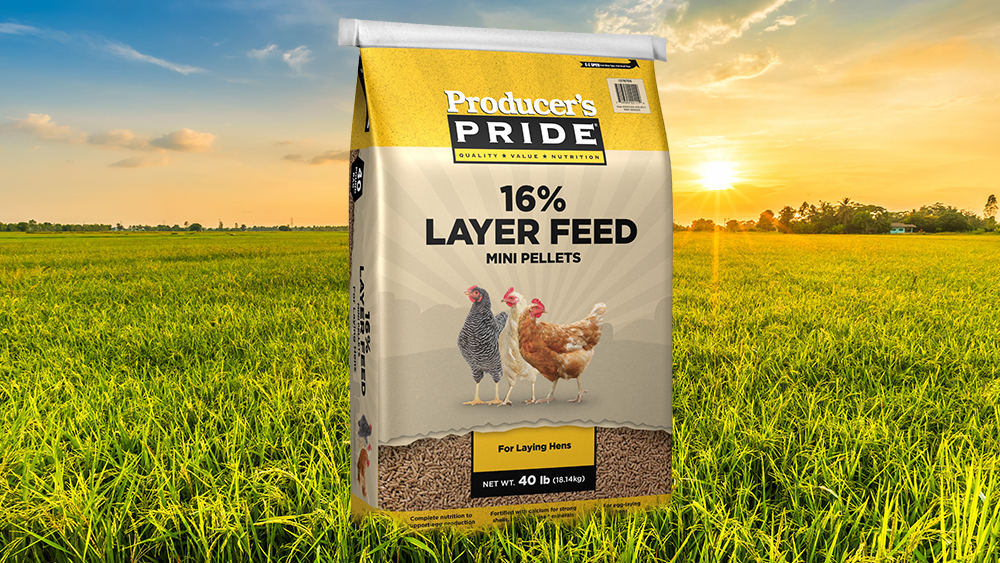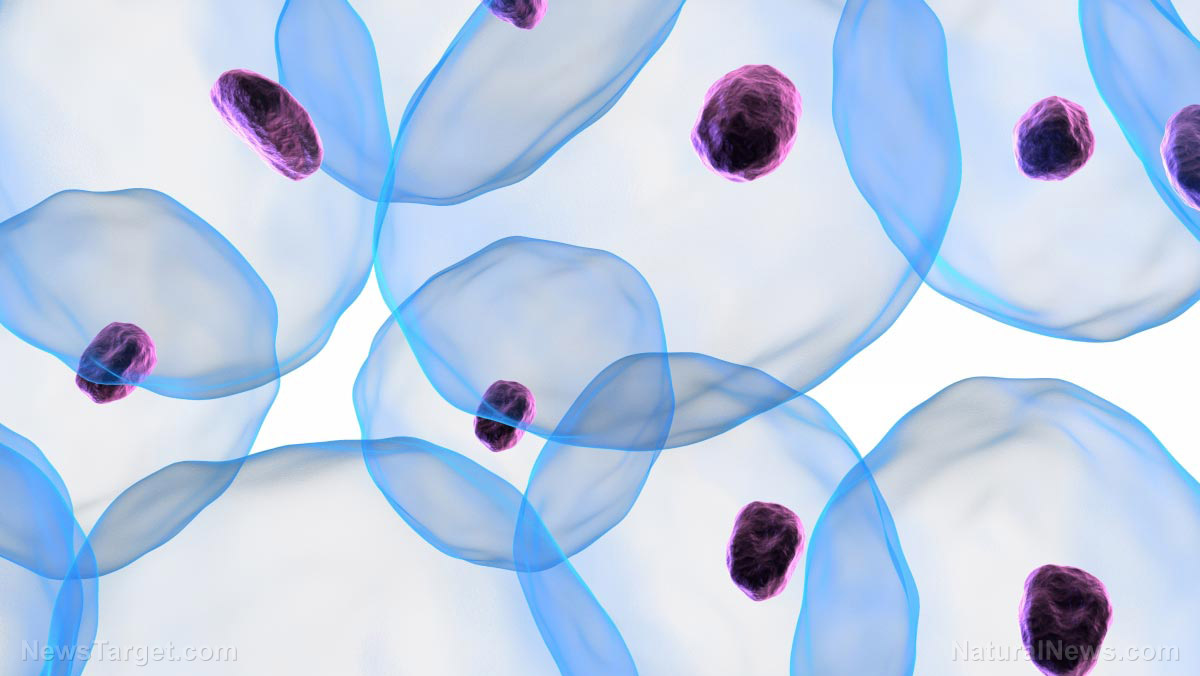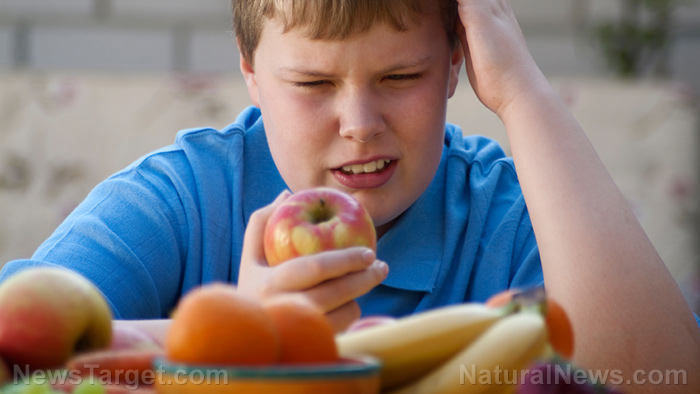Health and nutrition: Can you eat processed foods while following a diet to reduce cancer risk?
03/16/2023 / By Zoey Sky

Following a balanced diet and eating a variety of nutritious foods is key to maintaining your overall health.
But can you eat processed foods while following a diet to reduce cancer risk?
Karen Collins, a registered dietitian nutritionist (RDN), takes a closer look at the role of processed foods when following a diet to reduce cancer risk.
What are processed foods?
Almost all food is processed in some way. This even includes cooking and chopping “whole” foods.
But when you’re talking about processed foods, the real debate involves products called commercially processed foods, especially items that are more highly processed or items referred to as “ultra-processed” foods.
Studies use this system to differentiate between processed foods:
Minimally processed foods
These foods contain no added fats, salt, sugar or other additives. They include the “natural edible food parts of plants and animals.”
Examples:
- Dried fruit or mushrooms
- Frozen vegetables
- Fruit
- Meat
- Milk
- Shelled nuts
- Vegetable juice
Processed foods
Processed foods contain fat, salt, sugar or additional starch ingredients added to a minimally processed food. They are usually not eaten on their own but are used to prepare minimally processed foods.
Examples:
- Canned fish
- Canned vegetables
- Cheese
- Beans or olives in brine
- Salted nuts
Ultra-processed foods
Ultra-processed foods are made with industrial equipment and ingredients that break down whole foods like fruits and vegetables and combine them with other ingredients, usually ingredients not found in your kitchen.
This processing produces foods with an extended shelf life that are ready-to-eat or ready-to-heat.
Unfortunately, some “hyper-palatable” foods are made with fine-tuned combinations of fat, salt and sugar that trigger your brain’s reward system in ways that make you want to eat more. (Related: Study: Ultra-processed foods linked to increased risk of developing inflammatory bowel disease.)
Examples:
- Candy
- Chicken or fish “nuggets”
- Chips
- Energy bars
- Fruit “drink (That may sometimes only contain 10 percent fruit juice)
- Ice cream
- Sausage
- Soft drinks
- Sugar-sweetened “fruit” yogurt
- Veggie burgers
The list shows how the category of ultra-processed foods covers a wide range of products. This is one of the reasons that making sense of research on ultra-processed foods and cancer risk gets complicated.
What studies say about your health and ultra-processed foods
There are many studies about possible adverse effects of ultra-processed foods on people’s health.
Weight
Consuming a lot of ultra-processed food as a whole category is linked to a greater likelihood of weight gain, increased waist size and greater risk of being overweight and obese.
One research, which involves cross-sectional studies, can’t establish whether eating more ultra-processed food actually caused weight gain. But the link is observed in prospective studies that show changes in someone’s weight, waist and body mass index (BMI) over time.
Compared to those who consume the least ultra-processed foods, people who ate the most are more likely to become overweight or obese. If they are already overweight, they are more likely to develop obesity.
Cancer and heart disease
Ultra-processed foods that increase obesity risk can also inherently increase the risk of developing chronic diseases like cancer and heart disease that are linked to health issues like obesity.
Additionally, ultra-processed foods could raise health risks independent of weight gain. This means some may influence factors like your blood pressure, blood sugar spikes, insulin levels and the gut microbiome.
However, after adjusting for weight, evidence from human studies is inconsistent regarding the link between ultra-processed food consumption and chronic disease. This is due to how hard it is to separate the influence of ultra-processed foods from the quality of the overall dietary pattern.
The high consumption of ultra-processed foods may also affect lifestyle and socioeconomic factors that are linked to the risk of cancer and other chronic diseases.
The AICR’s dietary recommendations
For reduced cancer risk, the American Institute for Cancer Research (AICR) recommendation to limit processed foods focuses on foods that promote weight gain.
Analysis for AICR’s Third Expert Report found that foods high in fats, added sugars or refined grains promote weight gain when consumed frequently or in large portions.
Follow the AICR’s recommendations below to improve your eating habits:
- Replace sugar-sweetened soft drinks, energy drinks and bottled tea with plain water and unsweetened coffee or tea.
- Instead of eating cookies and chips, choose healthy snacks like fruits, vegetables or nuts.
- Round out a full meal with fruits, raw vegetables, a salad or soup instead of French fries.
Nuances among “processed foods” is important
As a dietitian trying to provide advice about healthy eating, Collins is worried about messaging that wraps up a wide range of foods under one umbrella term of processed foods. These foods are not all the same and she recommends limiting your intake of processed foods high in sodium.
While you don’t have to completely give up refined grains like Italian bread or juice, you have to make sure you don’t let processed foods with reduced fiber and nutrient content make up the bulk of your diet.
When processing removes valuable nutrients or most of the fiber in food, choose the ones that you enjoy the most in moderation. Balance this by giving less-processed foods like fruits and vegetables the largest part of your plate.
If budget or time and food prep is an issue, choose processed foods that can make healthy eating easier and more attainable.
Healthy eating doesn’t mean eating only whole foods. It means choosing the foods and portions that help you create overall eating patterns that promote overall wellness.
If you want to follow a diet to reduce cancer risk, don’t let sensational headlines distract you from the overall picture of what research shows about how healthy eating patterns can reduce cancer risk.
Watch the video below to know more about the link between longevity and the Mediterranean diet.
This video is from the Daily Videos channel on Brighteon.com.
More related stories:
Study suggests pomegranates can slow the growth of cancer cells.
Studies suggest boron has potent cancer-fighting properties.
Here are 4 reasons to include tree nuts in your diet.
Sources include:
Submit a correction >>
Tagged Under:
#nutrition, anticancer diet, clean food watch, fast food, fasting, fight obesity, food science, frankenfood, grocery, health science, products, research, stop eating poison
This article may contain statements that reflect the opinion of the author
RECENT NEWS & ARTICLES
StopEatingPoison.com is a fact-based public education website published by Stop Eating Poison Features, LLC.
All content copyright © 2018 by Stop Eating Poison Features, LLC.
Contact Us with Tips or Corrections
All trademarks, registered trademarks and servicemarks mentioned on this site are the property of their respective owners.




















